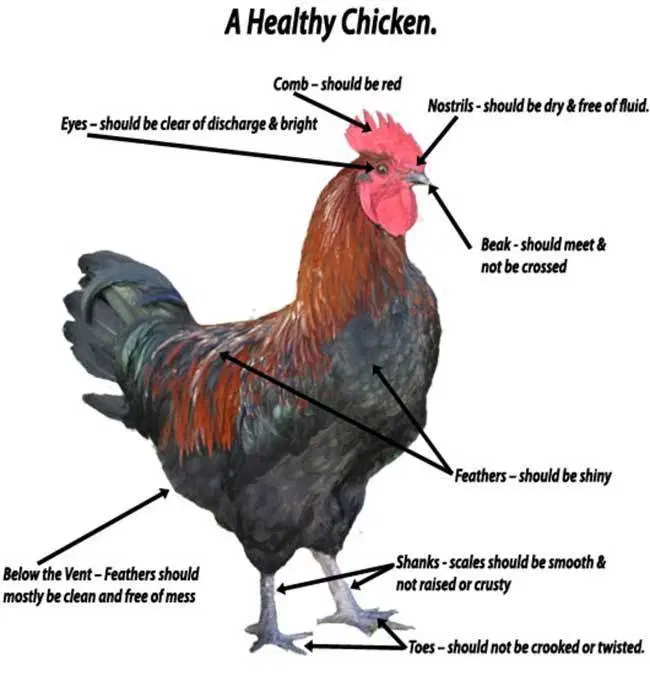Raising chickens can be a valuable asset for sustainable food sources, providing eggs, meat, and pest control. However, maintaining the health of your flock is essential to protect this investment. While securing their coop and providing nutritious feed are essential steps, individual chicken health plays a crucial role in preventing disease transmission and maintaining a thriving flock.
Is Your Chicken Laying Eggs?
Most chicken breeds start laying eggs at around 18 weeks of age and continue daily until they reach about six years old. If a chicken of laying age isn’t producing eggs, consider factors like environmental conditions, climate, nutrition, and molting before assuming illness. However, in mature hens, a sudden halt in egg production could indicate illness.
Common diseases that stop egg-laying in chickens include:
- Avian Influenza (Bird Flu): red spots on the comb, diarrhea, blueish comb/wattles
- Pullorum: respiratory issues like sneezing and coughing
- Fowl Pox: white spots on the skin, scabby comb, ulcers in the mouth
- Bronchitis: nasal discharge, sneezing, snoring sounds
- Airsacculitis: swollen joints, labored breathing
Note: Chickens that lay eggs during an infection may produce eggs with thin, wrinkled shells. This can be an early sign of illness, so consider antibiotics to help preserve their health.
Is Your Chicken Active and Mobile?
A healthy chicken will be eager to leave the coop in the morning, respond to feeding, and roam around pecking for insects. Lethargy, however, may signal heat exhaustion, cold weather adaptation, or illness. Diseases that cause lethargy and immobility include:
- Marek's Disease: cloudy eyes, tumors, discharge from the crop, molting
- Newcastle Disease: twisted neck, difficulty breathing
- Botulism: tremors, molting, eventual paralysis
Some diseases also cause physical swelling:
- Coryza: head swelling, closed eyes
- Fowl Cholera: swollen comb and wattles, nasal discharge
- Bumblefoot: cuts or dark spots, swelling usually on toes or shanks
Is the Excrement Solid or Runny?
Healthy chicken droppings should be solid, brown or white, and not overly pungent. If droppings are runny, foul-smelling, or discolored, it’s often a sign of illness, such as:
- Quail Disease: hunched back, bloating, white watery diarrhea, weight loss
- Salmonellosis: closed eyes, ruffled feathers, weight loss
- Coccidiosis: weight loss, feather ruffling, foul-smelling diarrhea
By maintaining your chickens' health, you ensure a reliable source of eggs and meat, contributing to sustainable food storage. Consider using a freeze-dryer, such as the Harvest Right Freeze-Dryer, to preserve your chicken products and extend their shelf life.
Share Your Insights
Do you have tips or experiences to share on maintaining chicken health? Leave a comment below to share your insights with others.












